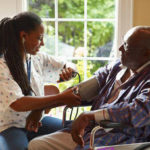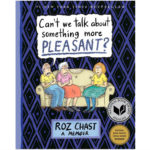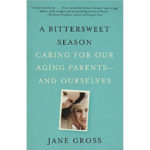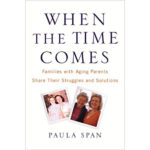 PARENTS
PARENTS
Articles
 What Do We ‘Owe’ Our Parents? More magazine conducted a nationwide survey of 751 men and women 18 and older with the hopes of giving some definition and parameters to this situation. If you could reduce the findings to one sentence, it would be that most Americans (81 percent) plan to help care for their aging parents. That’s the good news. But the not-so-good news is that more than a quarter said they didn’t know what was involved or how to plan for it – Next Avenue
What Do We ‘Owe’ Our Parents? More magazine conducted a nationwide survey of 751 men and women 18 and older with the hopes of giving some definition and parameters to this situation. If you could reduce the findings to one sentence, it would be that most Americans (81 percent) plan to help care for their aging parents. That’s the good news. But the not-so-good news is that more than a quarter said they didn’t know what was involved or how to plan for it – Next Avenue
 Take time to find the right home for aging loved ones Who would like to have good company, good food and a safe, affordable, attractive, lively place to live? Count me in – at any time of life. This seems particularly important as I grow older. What about you and your parents? You or they may eventually be faced with the question: Where is the best place for me or my parents to live? – SF Gate
Take time to find the right home for aging loved ones Who would like to have good company, good food and a safe, affordable, attractive, lively place to live? Count me in – at any time of life. This seems particularly important as I grow older. What about you and your parents? You or they may eventually be faced with the question: Where is the best place for me or my parents to live? – SF Gate
 3 Mantras Every Caregiver Needs It’s a good idea to remember that no matter how much planning you do, there’s no substitute for experience. Research is important but it’s overrated as a predictor of success.— Anne Tumlinson, Daughterhood.org
3 Mantras Every Caregiver Needs It’s a good idea to remember that no matter how much planning you do, there’s no substitute for experience. Research is important but it’s overrated as a predictor of success.— Anne Tumlinson, Daughterhood.org
Books
 Can’t We Talk About Something Pleasant by Roz Chait In her first memoir, New Yorker cartoonist Roz Chast brings her signature wit to the topic of aging parents. Spanning the last several years of their lives and told through four-color cartoons, family photos, and documents, and a narrative as rife with laughs as it is with tears, Chast’s memoir is both comfort and comic relief for anyone experiencing the life-altering loss of elderly parents.
Can’t We Talk About Something Pleasant by Roz Chait In her first memoir, New Yorker cartoonist Roz Chast brings her signature wit to the topic of aging parents. Spanning the last several years of their lives and told through four-color cartoons, family photos, and documents, and a narrative as rife with laughs as it is with tears, Chast’s memoir is both comfort and comic relief for anyone experiencing the life-altering loss of elderly parents.
 Bittersweet Season: Caring for Our Aging Parents — and Ourselves by Jane Gross The longtime New York Times expert on the subject of elderly care and the founder of the New Old Age blog shares her frustrating, heartbreaking, enlightening, and ultimately redemptive journey, providing us along the way with valuable information that she wishes she had known earlier.
Bittersweet Season: Caring for Our Aging Parents — and Ourselves by Jane Gross The longtime New York Times expert on the subject of elderly care and the founder of the New Old Age blog shares her frustrating, heartbreaking, enlightening, and ultimately redemptive journey, providing us along the way with valuable information that she wishes she had known earlier.
 When the Time Comes: Families with Aging Parents Share Their Struggles and Solutions by Paula Span What will you do when you get the call that a loved one has had a heart attack or a stroke? Or when you realize that a family member is too frail to live alone but too healthy for a nursing home? Journalist Paula Span shares the resonant narratives of several families who faced these questions. Each family contemplates the alternatives in elder care (from assisted living to multigenerational living to home care, nursing care, and at the end, hospice care) and chooses the right path for its needs. Span writes about the families’ emotional challenges, their practical discoveries, and the good news that some of them find a situation that has worked for them and their loved ones. And many find joy in the duty of caring for an older loved one.
When the Time Comes: Families with Aging Parents Share Their Struggles and Solutions by Paula Span What will you do when you get the call that a loved one has had a heart attack or a stroke? Or when you realize that a family member is too frail to live alone but too healthy for a nursing home? Journalist Paula Span shares the resonant narratives of several families who faced these questions. Each family contemplates the alternatives in elder care (from assisted living to multigenerational living to home care, nursing care, and at the end, hospice care) and chooses the right path for its needs. Span writes about the families’ emotional challenges, their practical discoveries, and the good news that some of them find a situation that has worked for them and their loved ones. And many find joy in the duty of caring for an older loved one.
